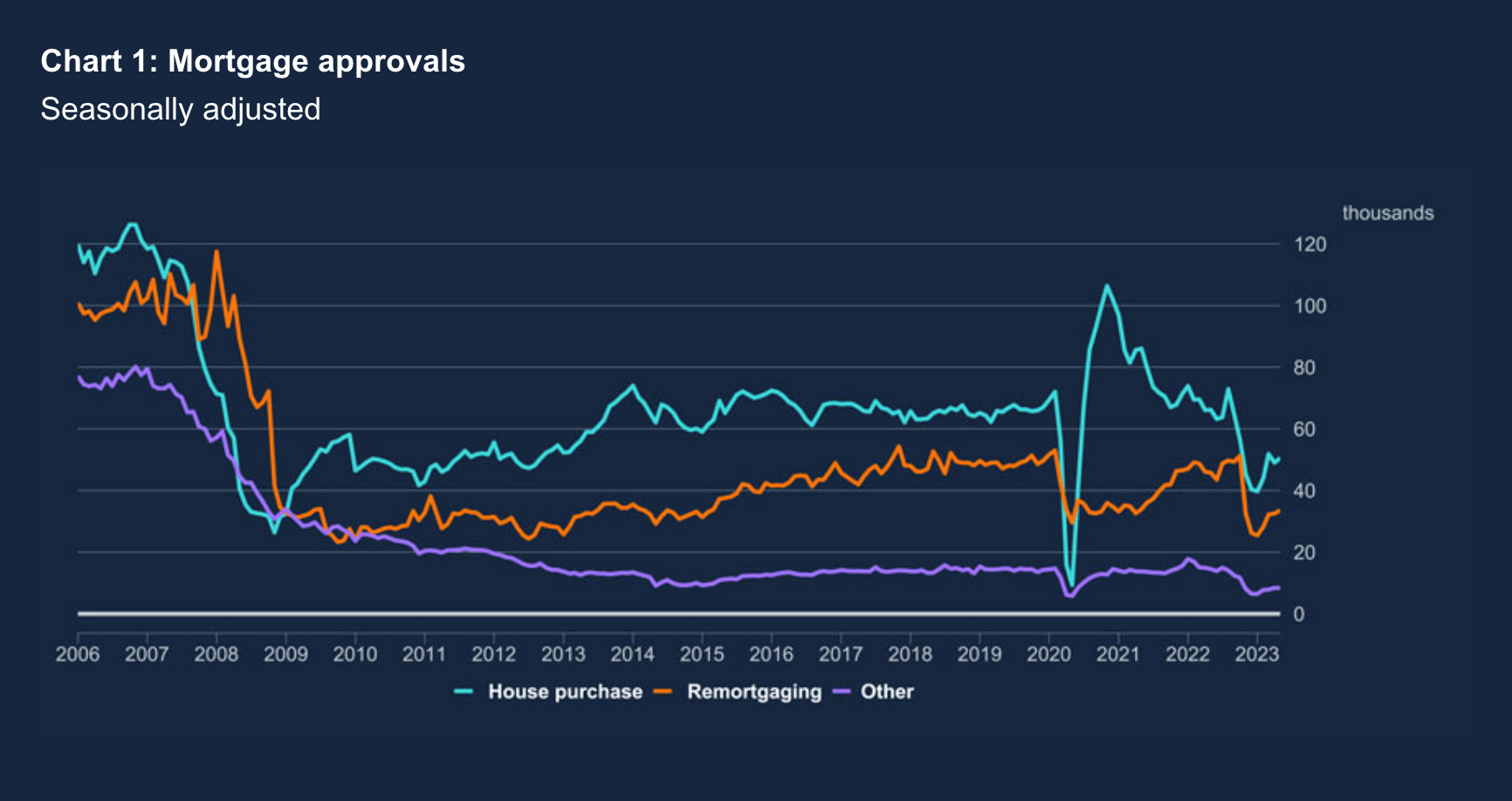House prices dip as consumers raid savings
Making sense of the latest trends in property and economics from around the globe.
3 minutes to read
House prices
UK house prices were relatively flat during June meaning the annual decline now equates to 3.5%, Nationwide said this morning. East Anglia was the weakest performing region with prices down 4.7% year-on-year.
Longer term borrowing costs have risen to levels not seen since the weeks following the mini budget, but sentiment has so far remained resilient, Nationwide chief economist Robert Gardner said. The recent sharp increase in borrowing costs should, however, "exert a significant drag on housing market activity in the near term," he added.
Around 400,000 borrowers are set to refinance each quarter over the coming few years. That equates to around 20% of the fixed rate mortgage stock refinancing by the end of 2023 and about 40% by the end of 2024.
With mortgage rates approaching 6%, those coming off two-year fixed rate deals can expect to pay an extra 425bps for a new two year deal, which equates to an increase of £385 per month for a typical borrower, Mr Gardner said. Those coming off five-year deals face an increase of 350bps on a new five-year fix (assuming a rate of 5.5%), which equates to an increase of roughly £315 per month for a typical borrower.
Mortgage lending
With that in mind, it's perhaps unsurprising that consumers are digging into their savings and paying down debt.
Households withdrew a net £4.6 billion from banks and building societies in May, the largest amount on record, the Bank of England said yesterday. The data showed outflows of £3.8 billion from National Savings and Investment (NS&I) accounts, down from inflows of £5.3 billion the previous month. Meanwhile, homeowners repaid a net £0.1 billion of mortgage debt during the month, following a record (excluding the pandemic) £1.5 billion of net repayments in April.
The interest rate paid on newly drawn mortgages rose by 10 basis points to 4.56% in May, according to the same release. Mortgage approvals for house purchase, a reliable indicator of future borrowing, ticked up 50,500, from 49,000 in April (see chart). That reading will soften over the coming months as higher mortgage rates feed through.

The services rotation, continued
We talked on Monday about how a large chunk of consumer spending reverted back to services from goods as economies reopened after the pandemic. The rotation created much more persistent inflation that is more closely tied to wages.
Germany became the latest nation to show signs of resurgent inflation yesterday. The headline rate rose to 6.8% in the year to June, up from 6.3% a year earlier. Services prices rose at a new record rate of 5.3%.
That makes Germany a bit of an outlier in the Eurozone. Figures from France, Italy, the Netherlands and Spain have all in recent days suggested that the European Central Bank's series of interest rate rises is having the desired effect. Spain actually became the first nation to bring inflation back to the ECB's 2% target, with the headline rate rising just 1.6% in the year to June, according to the release published yesterday.
Even there, however, core inflation eased only slightly to 5.9%, from 6.1% a month earlier. The ECB is on course to raise interest rates again in July.
Branded residences
While global real estate markets are feeling the pinch from higher interest rates, the branded residences market is enjoying something of an upswing. Our Global Branded Residences report, out Monday, revealed that the sector is growing at a strong clip - equating to annual growth of 12% in new developments each year up to 2026.
We wanted to dig deeper into why the sector has captured the imaginations of the world's wealthiest individuals, so for a new episode of Intelligence Talks I spoke to James Price from Four Seasons Hotels and Resorts. James talks about what's driving demand, how brands are working with developers and which markets are set for the most explosive growth. Listen here.
In other news...
Elsewhere - Bank of England governor signals interest rates likely to stay higher for longer (FT), wind farms drive 42% surge in Crown Estate’s property profits (FT), and finally, US regulators ask lenders to help firms with commercial real estate stress (Bloomberg).